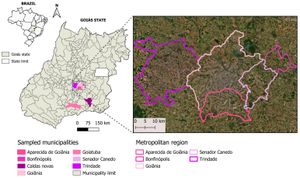Honeywell International Inc. has announced its plans to split its operations, creating three distinct publicly traded companies. This decision, spearheaded by CEO Vimal Kapur, is driven by "unprecedented demand" within both the commercial and defense aerospace sectors. According to the company's statement, the spinoffs will separate Honeywell’s automation, aerospace, and advanced materials divisions.
The Charlotte, N.C.-based company has slated the completion of these separations for the latter half of 2026, with the advanced materials division expected to operate independently by late 2025 or early 2026.
"The formation of three independent, industry-leading companies builds on the powerful foundation we have created, positioning each to pursue targeted growth strategies and unlocking significant value for shareholders and customers", stated Vimal Kapur during the announcement.
The restructuring mirrors recent trends among major corporations, reminiscent of General Electric's split last year, which also sought to streamline operations across its sprawling business units. Following extensive portfolio evaluations, Honeywell plans to create companies with simplified strategic focuses, allowing each entity to tailor its growth strategies according to market dynamics.
Under this new structure, Honeywell's automation division aims to transition from automation to autonomy, focusing on providing cutting-edge hardware and software solutions to improve productivity across various industries such as manufacturing and logistics. This unit is projected to maintain revenues of approximately $18 billion in 2024.
Similarly, Honeywell Aerospace will continue to expand its extensive range of aviation technologies, which already enjoys significant presence globally. With anticipated revenues of $15 billion for 2024, Honeywell Aerospace produces key technologies for nearly every aircraft platform, reflecting its importance within the defense sector.
The separation is not only expected to empower the individual companies but is also viewed as strategically advantageous from a financial perspective. By establishing the automation, aerospace, and advanced materials divisions as standalone entities, Honeywell posits each will enjoy greater financial flexibility and improved capital allocation suited to their specific markets. Capacities will be enhanced through more focused management teams with deep domain expertise, fostering operational improvements and potential valuation uplifts.
Marc Steinberg and Jesse Cohn of Elliott Investment Management, whose activism played a role in instigting this separation, echoed the anticipated benefits, stating, "The enhanced focus, alignment, and strategic agility enabled by this separation will allow Honeywell to realize the opportunity for operational improvement and valuation upside." Their support for the restructuring accentuates the gravity of shareholder interests and market positioning.
Notably, the aerospace unit has shown promising growth, particularly within its defense and space sales, which surged by 14% during the fourth quarter of 2024. Honeywell's defense business alone accounted for approximately $4.9 billion—or about 14%—of its total revenues, signifying its substantial role within the larger corporate framework.
Moving forward, Honeywell is also committed to maintaining its investment-grade credit rating through these transitions. The company is set to facilitate the spinoff of its advanced materials business, which focuses on producing sustainable chemical solutions, aligned with Honeywell's recent emphasis on environmentally beneficial products.
This breakup will be executed as a tax-free event for Honeywell's shareholders, ensuring minimal disruption to their investments. The company envisions each of the new divisions functioning with distinct identities and strategies, thereby tailoring their approaches to meet specific challenges and opportunities within their respective markets.
Consolidation within any industry often sets the stage for future growth, and for Honeywell, this strategic move could serve as the catalyst for greater operational efficiencies and enhanced shareholder value. By focusing on core competencies within separate businesses, Honeywell is positioning itself to navigate the challenges of dynamic markets more effectively, ensuring each new entity can adapt and thrive independently.
Honeywell has been proactive throughout the past year, announcing approximately $9 billion worth of accretive acquisitions to drive organic growth and streamline operations. The company plans to divest non-core units—including its Personal Protective Equipment business segment—which is expected to close by mid-2025.
With anticipation mounting around the newly structured companies, industry observers are poised to watch how these changes reshape Honeywell's operational strategies and influence its market stature moving forward. The spin-offs will likely allow for more focused innovation and development, particularly within aerospace, as Honeywell seeks to reinforce its leading position in the industry.



